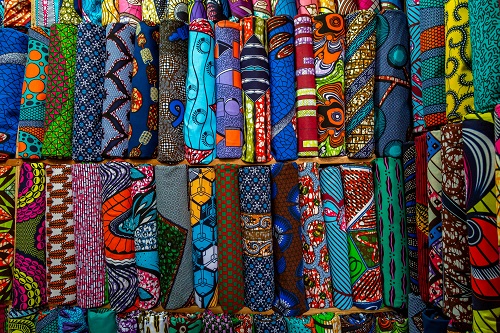Selling Vitenges Business

Type: Retail
Key Products for Sale:
Colorful and patterned vitenges (African fabrics) for clothing, home decor, and accessories
Additional services like custom tailoring and styling consultations
Market for the Products:
Individuals seeking vibrant and culturally rich fabrics for clothing, home decor, and accessories
Local events, festivals, and gatherings celebrating African culture
Tourists interested in authentic African souvenirs
Key Inputs into the Business:
Variety of vitenge fabrics sourced from local suppliers and artisans
Skilled tailors and designers for custom tailoring and styling services
Engaging and customer-friendly retail space or market stall Product
Preparation Process:
Curating a diverse selection of vibrant and high-quality vitenge fabrics
Offering customization options such as tailored clothing or personalized accessories
Creating an inviting and culturally immersive shopping experience for customers
Quality Considerations:
Ensuring authenticity and quality of vitenge fabrics sourced from reputable suppliers
Providing excellent customer service, including personalized styling advice and assistance
Offering durable and well-crafted products that showcase the beauty of African textiles
Cost of Investment:
Inventory of vitenge fabrics: between KES 50,000 and KES 100,000
Tailoring equipment and supplies: between KES 20,000 and KES 50,000
Retail space rental or market stall fees: between KES 10,000 and KES 30,000
Marketing and advertising expenses: between KES 5,000 and KES 20,000
Total Estimated Cost Ranges from KES 85,000 to KES 200,000.
Required Operational Infrastructure:
Retail space or market stall for displaying and selling vitenge fabrics and products
Tailoring workshop or partnership with local tailors for customization services
Storage space for inventory and supplies
Most Suitable or Viable Location:
High-traffic areas with a diverse customer base and interest in African culture and fashion
Near tourist attractions or cultural centers
Potential Sources of Investment Capital:
Personal savings or investment
Small business loans or grants
Partnerships with local artisans or fashion designers
Requirements for Effective Management:
Efficient inventory management and supply chain logistics
Quality control measures to ensure the authenticity and integrity of vitenge fabrics
Customer service training for staff to provide personalized assistance and styling advice
Role of Mobile Phone and ICT in the Business:
Online platform for showcasing products and accepting custom orders
Communication with customers via phone calls, text messages, and social media platforms
Social media marketing and engagement to reach a wider audience and showcase products
Statutory Regulations and Licenses:
Business registration and permits for retail operations
Compliance with local regulations and taxation requirements
Proper documentation and licensing for importing or exporting vitenge fabrics
Pricing:
Competitive pricing based on market rates and quality of products
Consideration of customization and tailoring services in pricing strategy
Profitability:
Calculate profitability based on sales revenue and operating expenses
Focus on customer satisfaction and repeat business for long-term profitability
Next Steps to Take:
- Secure inventory of vitenge fabrics and establish supply chain partnerships
- Set up retail space or market stall and decorate it with vibrant and culturally rich displays
- Launch marketing campaigns to attract customers and promote a grand opening
- Offer customization services and personalized styling consultations to enhance customer experience

